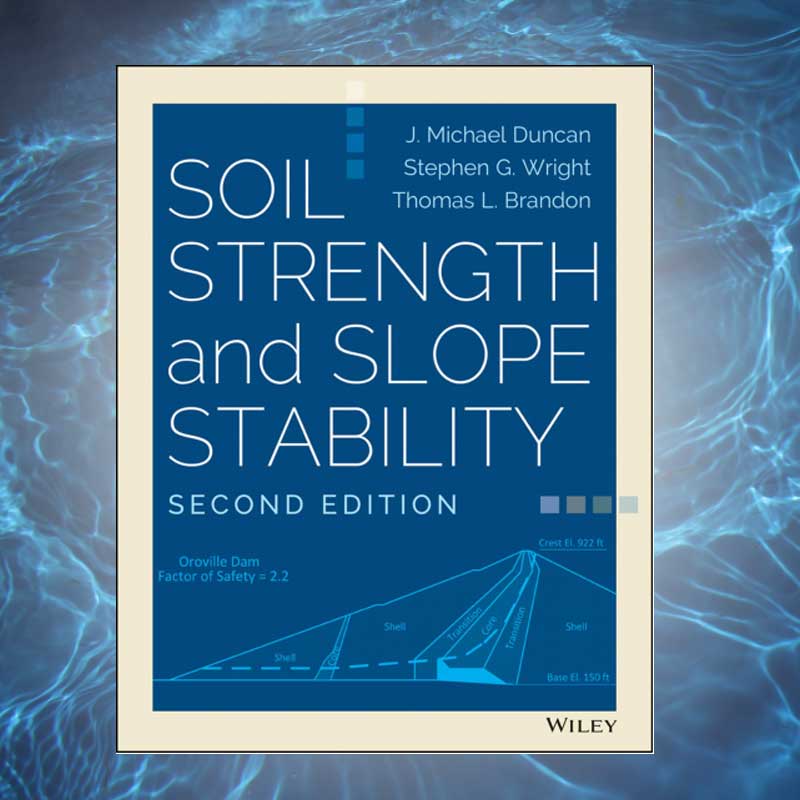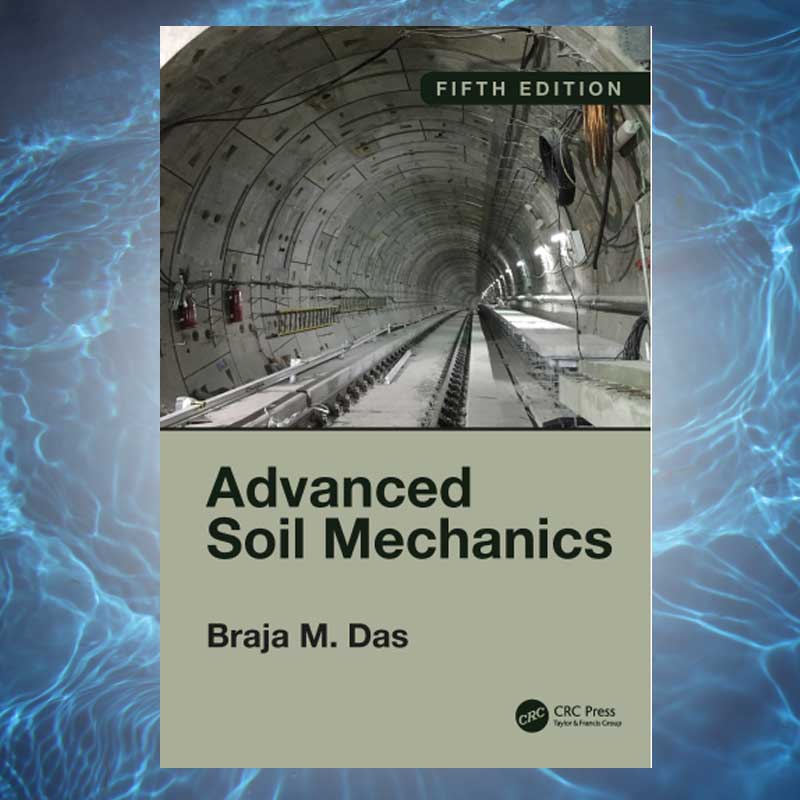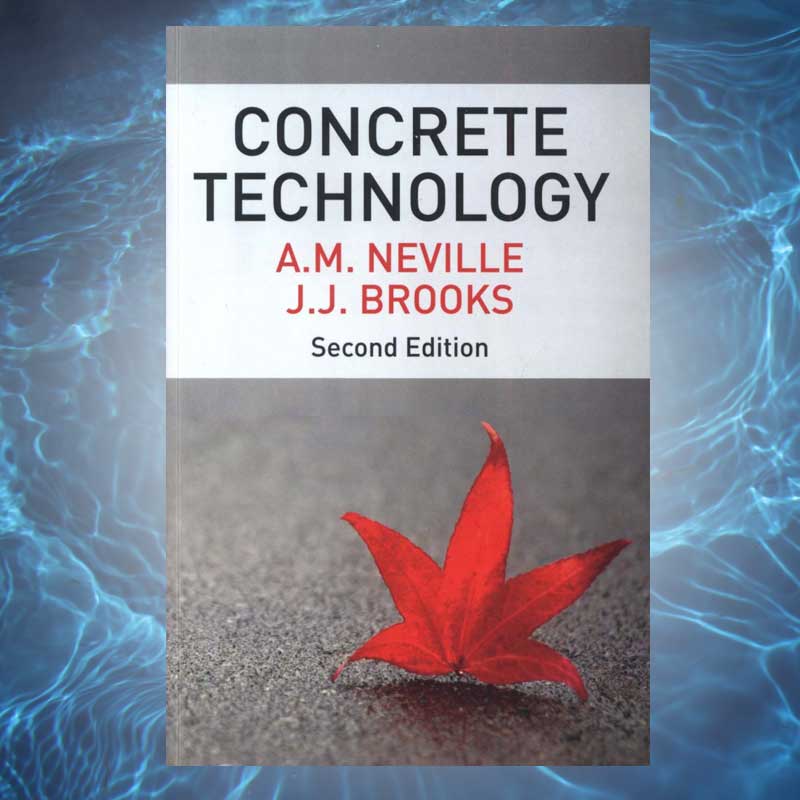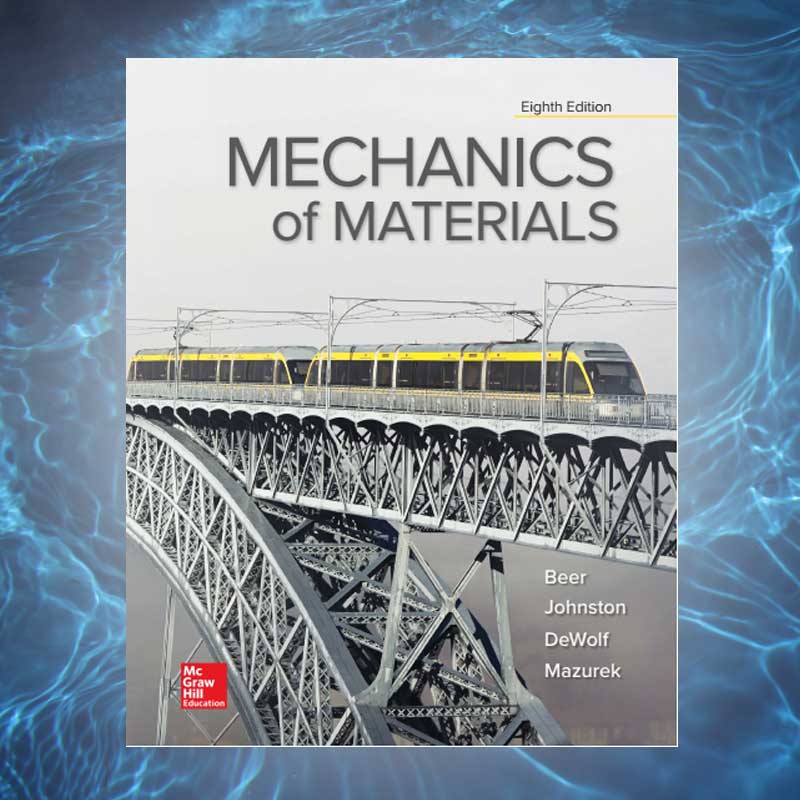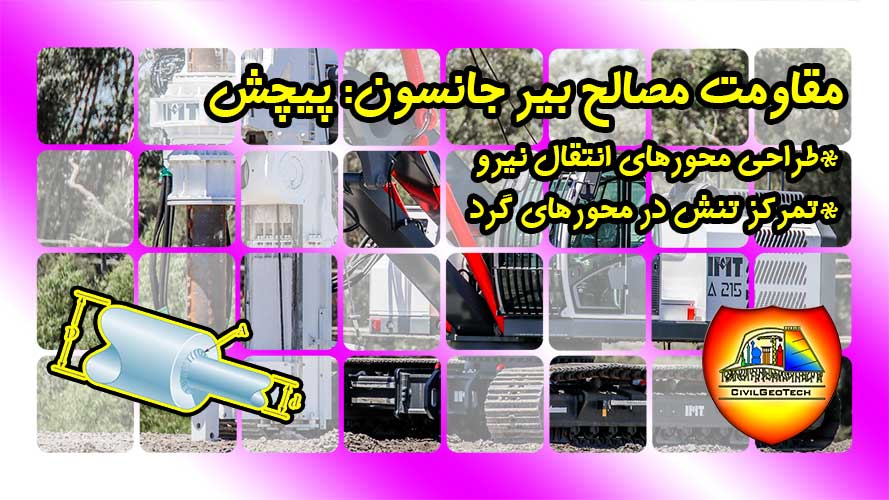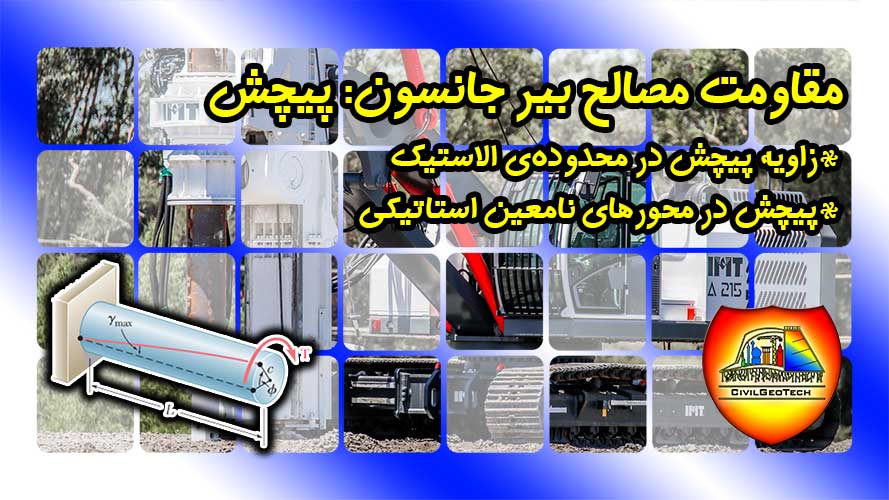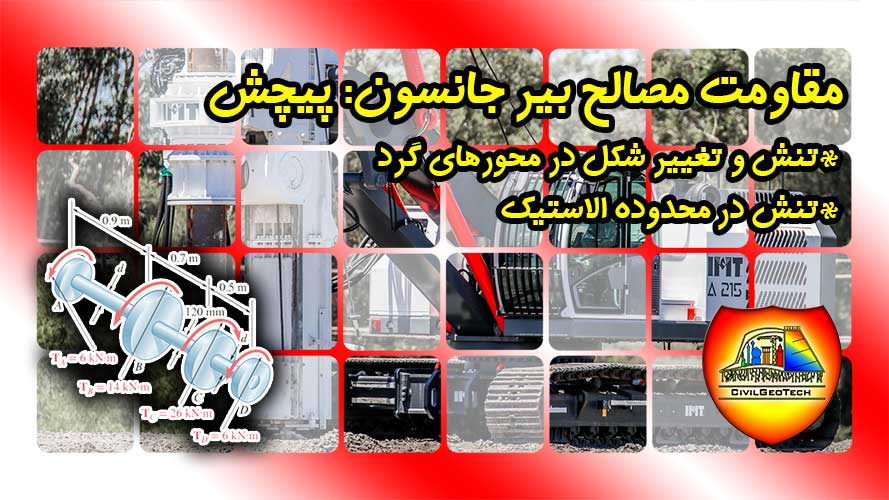Duncan. J. Michael and Wright. Stephen G. and Brandon. Thomas L, (2014), Soil Strength And Slope Stability, 2nd ed, Wiley
مقدمه:
In the nine years since the appearance of the first edition of Soil Strength and Slope Stability there have been significant developments in measurement of soil strength in the laboratory and the field, advances in methods of stability analysis, and development of new techniques for slope stabilization.
In situ testing, particularly cone penetration testing, has improved the efficiency of soil exploration and evaluation of soil strength through the use of correlations. Chapter 5, on shear strength of soil and municipal solid waste, is greatly expanded in this edition, providing discussions of the behavior of rockfill, gravel, sand, silt, and clay, as well as compilations of data and typical values of their strengths.
This edition also draws together more lessons that have been learned from recent slope failures, such as the failures of I-walls in New Orleans during Hurricane Katrina, and delayed failures that resulted from gradual softening of clays over long periods of time. The purpose of this book is to describe the current state of knowledge on soil strength and slope stability in a form that makes it easily accessible to geotechnical graduate students and professionals.
Development of this book would not have been possible without the assistance of many colleagues, whose contributions to our understanding we gratefully acknowledge. Foremost among these is Professor Harry Seed, who taught all of us and was the inspiration for our lifelong interest in soil strength and slope stability. We are also grateful for the opportunity to work with Nilmar Janbu, who during his sabbatical at Berkeley in 1969 taught us many
در 9 سال پس از ظهور اولین نسخه مقاومت خاک و پایداری شیب، پیشرفت های قابل توجهی در اندازه گیری مقاومت خاک در آزمایشگاه و مزرعه، پیشرفت در روش های تجزیه و تحلیل پایداری و توسعه تکنیک های جدید برای تثبیت شیب رخ داده است.
آزمایش درجا، به ویژه آزمایش نفوذ مخروط، کارایی اکتشاف خاک و ارزیابی مقاومت خاک را از طریق استفاده از همبستگی ها بهبود بخشیده است. فصل 5، در مورد مقاومت برشی خاک و پسماندهای جامد شهری، در این نسخه بسیار گسترش یافته است، و بحث هایی در مورد رفتار سنگ پر، شن، ماسه، سیلت، و رس، و همچنین گردآوری داده ها و مقادیر معمولی مقاومت آنها ارائه می کند.
این نسخه همچنین درس های بیشتری را که از شکست های شیب اخیر آموخته شده است، مانند شکست دیوارهای I در نیواورلئان در طول طوفان کاترینا، و شکست های تاخیری ناشی از نرم شدن تدریجی خاک رس ها در دوره های زمانی طولانی، گرد هم می آورد. هدف این کتاب توصیف وضعیت فعلی دانش در مورد مقاومت خاک و پایداری شیب به شکلی است که به راحتی برای دانشجویان و متخصصان ژئوتکنیک در مقطع کارشناسی ارشد قابل دسترسی باشد.
توسعه این کتاب بدون کمک بسیاری از همکاران ممکن نبود، که ما با سپاسگزاری از کمک آنها به درک ما قدردانی می کنیم. مهمترین آنها پروفسور هری سید است که به همه ما آموخت و الهام بخش علاقه مادام العمر ما به استحکام خاک و پایداری شیب بود. ما همچنین از فرصتی برای همکاری با نیلمار جانبو، که در خلال تعطیلات خود در برکلی در سال 1969 به ما آموخته های بسیاری را سپاسگزاریم.
فهرست عناوین:
CHAPTER 1 INTRODUCTION
CHAPTER 2 EXAMPLES AND CAUSES OF SLOPE FAILURES
CHAPTER 3 SOIL MECHANICS PRINCIPLES
CHAPTER 4 STABILITY CONDITIONS FOR ANALYSIS
CHAPTER 5 SHEAR STRENGTH
CHAPTER 6 MECHANICS OF LIMIT EQUILIBRIUM PROCEDURES
CHAPTER 7 METHODS OF ANALYZING SLOPE STABILITY
CHAPTER 8 REINFORCED SLOPES AND EMBANKMENTS
CHAPTER 9 ANALYSES FOR RAPID DRAWDOWN
CHAPTER 10 SEISMIC SLOPE STABILITY
CHAPTER 11 ANALYSES OF EMBANKMENTS WITH PARTIAL CONSOLIDATION OF WEAK FOUNDATIONS
CHAPTER 12 ANALYSES TO BACK-CALCULATE STRENGTHS
CHAPTER 13 FACTORS OF SAFETY AND RELIABILITY
CHAPTER 14 IMPORTANT DETAILS OF STABILITY ANALYSES
CHAPTER 15 PRESENTING RESULTS OF STABILITY EVALUATIONS
CHAPTER 16 SLOPE STABILIZATION AND REPAIR

